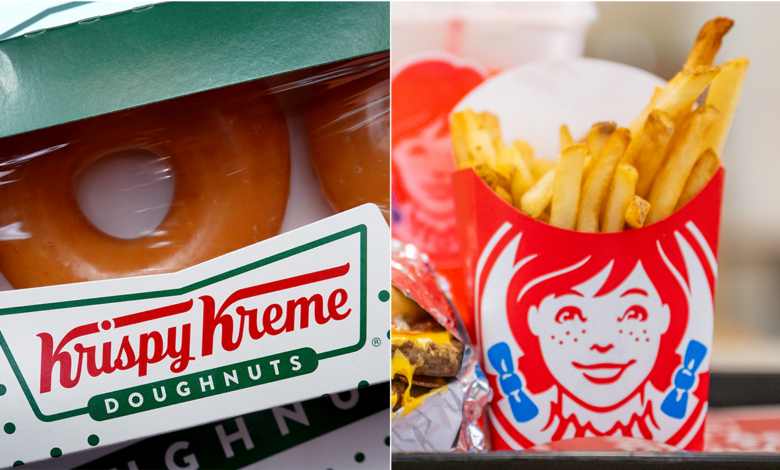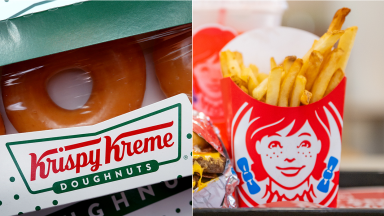

Today—Friday the 13th—is infamous for being a day of bad luck.
However, in an attempt to ease any superstitions, fast food chains Krispy Kreme and Wendy’s are offering deals to make customers feel better about their Friday.
Here’s how you can snag those deals for yourself and learn how the day earned its spooky reputation.
Krispy Kreme Deal
Krispy Kreme is offering customers a dozen Original Glazed doughnuts for just 13 cents with the purchase of any dozen or 16-count Minis at regular price. To access this buy-one-get-one deal, fans must use the promo code “13” when ordering in-store or online via the app or website. Customers are limited to one 13-cent dozen.
Wendy’s Deal
The fast food chain known for its “Baconator” is offering Rewards members a free any-size hot and crispy fries with any purchase made through the app. Customers can also enjoy a small Frosty for $1 through the end of the month.
Why Is Friday the 13th Considered Unlucky?
The belief that Friday the 13th is unlucky has roots in religious contexts and has evolved over time into a cultural phenomenon.
According to National Geographic Kids, the origin “likely comes from the Christian religion.” For example, in the Bible, Judas—who is said to have betrayed Jesus—was the 13th guest at the Last Supper. Additionally, many unfortunate events in the Bible are said to have occurred on Fridays.
In Norse mythology, a similar event is believed to have taken place when Loki, the god of mischief, became the 13th guest at a dinner in Valhalla. His arrival caused chaos and led to the death of another god, Balder, further associating the number 13 with misfortune.
Additionally, in numerology, the number 12 is often seen as “complete” (such as the 12 months of the year, 12 zodiac signs, 12 apostles, etc.), while 13 is considered irregular or an outlier, symbolizing bad luck or chaos.
Over time, literature, films, and popular culture have reinforced this superstition. The 1980 horror film Friday the 13th helped popularize the day as a harbinger of doom and bad luck in modern culture.
In 2024, the date—which occurs at least once a year—will happen twice, in September and December.
Source link





